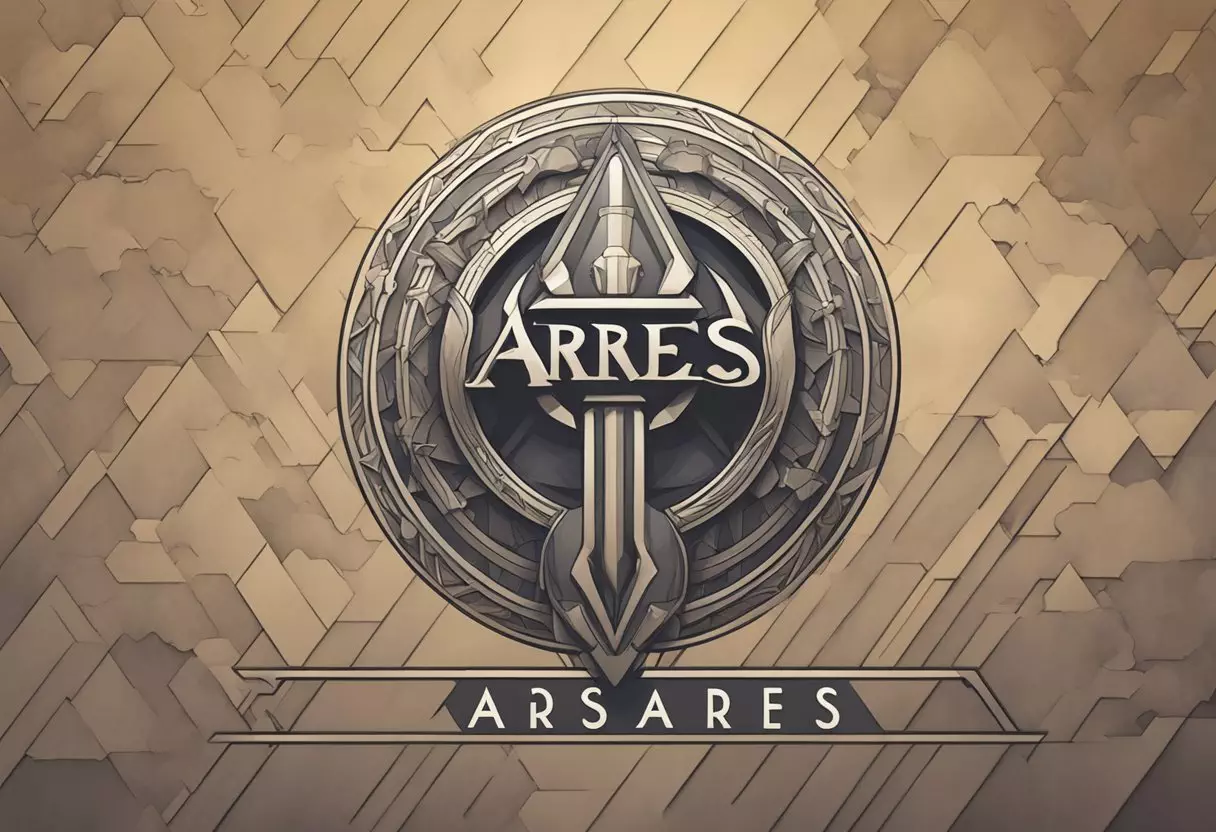Baby Name Ares: Choosing a Name Fit for a Warrior
Choosing a baby name is a significant decision and maybe you’re considering the name Ares for your little one. Ares, deriving from Greek origin, carries the powerful meaning of “ruin, bane” and is notably recognized as the name of the Greek god of war, representing a strong and formidable presence. It’s a name that has held on to its mythological roots, offering a sense of ancient strength and valour.

While the name Ares is steeped in history, its rise in popularity is relatively recent. Only breaking into the US Top 1000 in 2013, Ares has been climbing the ranks as a choice for parents attracted to names from myth and legend. Its strong, one-syllable sound makes it a striking choice for a baby boy, while its rarity ensures it stands out on the playground.
Understanding a name’s meaning and origin can be as important as liking how it sounds. ‘Ares’ connects your child to timeless tales and cultural heritage, while also gifting him with a name that holds individuality and presence. Whether inspired by the intensity of its mythological connections or just its bold sound, naming your baby Ares sets a powerful precedent for your child’s identity.
Table of Contents
The Origin and Meaning of Ares
When you hear the name Ares, your mind likely jumps to the fearsome deity of Greek Mythology known for his warrior spirit. This section carves out the history and etymology behind the illustrious name Ares.
Significance in Greek Mythology
Ares, in the tapestry of Greek mythology, stands as the unyielding god of war. Revered and feared, he embodies the physical valor and tumult of warfare, contrary to the more strategic aspect symbolized by his sister, Athena. Ares is the son of Zeus and Hera, and despite his violent tendencies, his name has been carried through millennia, resonating with strength and intensity. Discover more about Ares’ standing in Greek mythology.
Linguistic Roots and Variations
The origin of the name Ares (Ἄρης in Greek) draws from the language of Ancient Greece. It may stem from the Greek word ἀρή (are), conveying the sense of “bane” or “ruin”, which befits his destructive role in myth. Alternatively, some linguists link it to ἄρσην (arsen), meaning “male”. Variations of the name Ares appear across different cultures, though maintaining that original, potent essence found in its Greek roots. For a deep dive into the name’s etymology and variations, consider exploring these insights on Linguistic Roots and Variations.
Ares in Modern Culture

You’ve likely come across the name Ares beyond the pages of ancient mythology textbooks. In modern culture, particularly in popular media and literature, Ares has emerged as a symbolic figure representing various facets of strength, conflict, and assertiveness.
Popular Media and Literature
Ares, the Greek god of war, is a character that has been adapted across various forms of media, from books to television series. Often depicted wearing armor and a helmet, he personifies the archetypal warrior and has influenced numerous works. For instance, in the world of comics, Ares is a staple character in the DC Universe, representing both a villain and an antihero in stories alongside Wonder Woman. His conflict-driven nature translates to complex story arcs that resonate with readers.
Moving from page to screen, Ares’s impact is notable. He’s been featured in TV shows and movies alike, sometimes as the fierce deity from Greek mythology, other times reimagined as a modern-day character. In some adaptations, Ares has been portrayed not just as a figure of physical aggression but also as a cunning businessman, bringing a contemporary twist to the ancient mythological character.
Influence on Names in Society
As a name, Ares has experienced a resurgence in popularity. Beyond its mythological roots, it embodies a sense of power and uniqueness that appeals to many parents looking for a strong name for their children. The name’s climb in popularity charts illustrates how ancient mythological figures can still have a significant influence on naming trends in society. The reverence for names drawn from Greek gods like Ares signifies a cultural interest in names that have stood the test of time coupled with a modern-day penchant for distinctiveness.
Naming Trends and Popularity
When selecting a baby name, you may find the Greek name Ares intriguing, particularly if you’ve noticed its recent surge in popularity. This name has not only made its way into the US Top 1000 names for the first time, but it’s also become one of the fastest-rising names.
Rise in the Name Ares
Ares has seen a notable increase in usage as a boy’s name. This rise can likely be attributed to a growing interest in mythological names which tend to carry strong, historical connotations. According to Nameberry, Ares entered the US Top 1000 in 2013, climbing rapidly in popularity.
Comparative Popularity Charts
When you look at the popularity charts, Ares may not dominate the top spots but its significant leap in the rankings is worth attention. For context, compare its ranking with traditional names or other mythological names, you’ll notice that Ares is distinguishing itself among parents seeking unique names. The BabyCenter provides a more detailed view of the name’s trajectory through the years.
Pronunciation and Variations of Ares
When you’re considering the name Ares for a boy, it’s important to know how it’s pronounced in different parts of the world, as well as its various spellings and alternatives.
Global Pronunciation Guides
The way Ares is pronounced can vary significantly around the globe. Here’s a quick guide to help you with the pronunciation:
- English: Typically, Ares is pronounced as /ˈɛəriːz/, which sounds like AIR-eez. If you’re interested in the subtleties of the name’s pronunciation, resources like Nameberry can be useful.
- Spanish: In Spanish-speaking countries, the name often sounds like /ˈaɾes/, which can be articulated as AH-rehs. You can hear different pronunciations and accents through sites such as How To Pronounce.
Similar Names and Alternatives
As you explore the name Ares, you may encounter several variations or similar names that might catch your interest:
- Aris: A compact and slightly softer alternative to Ares.
- Aric: This name shares a similar beginning with Ares but offers a different ending sound, giving it a distinct feel while still maintaining a strong connection to the original.
In addition to variations like Aris and Aric, you may find a bevy of similar names and alternatives that echo the strength and masculinity of Ares. Remember, the name you choose will be a significant part of your child’s identity, so take your time to find the one that resonates best with you.
Choosing Ares: Things to Consider
When you’re considering the name Ares for your baby boy, it’s essential to weigh its strong cultural heritage and how it might pair with potential sibling and middle names.
Cultural and Familial Significance
Ares is steeped in cultural history. Originating from Greek mythology, Ares was the god of war, embodying both courage and physical strength. If you have Greek heritage or an affinity for mythological names, Ares could be a notable nod to your roots. However, it’s important to be aware that the name carries connotations of warfare and battle, which might influence the perception of Ares’ meaning in various contexts.
Sibling and Middle Name Combinations
When choosing Ares for your son, considering how it sounds with sibling names can be quite fun. With its robust single-syllable sound, Ares pairs well with longer, classical names such as Alexander or Evangeline. For middle names, you might prefer something that softens the strong ‘war’ association, like Ares Julian or Ares Sebastian. Additionally, because Ares is distinctly masculine, if you’re thinking ahead to potential sibling names for baby boys, consider those that hold their own next to such a powerful name, like Leon or Drake.
